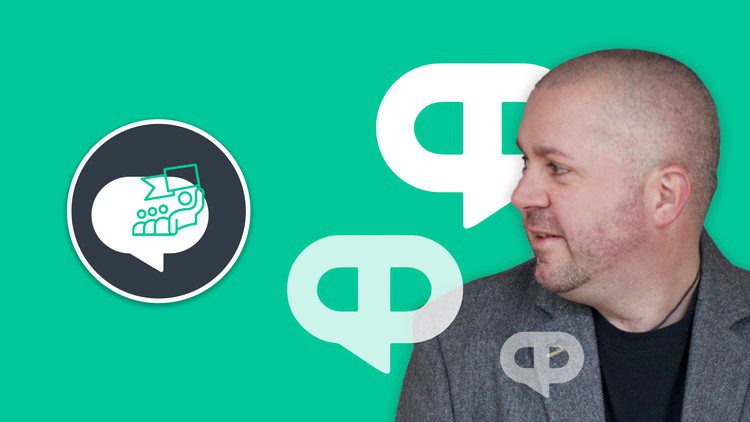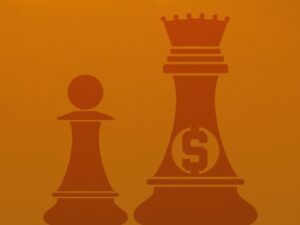Mindfulness para una gestión y un liderazgo altamente eficaces
- Descripción
- Plan de estudios
- PREGUNTAS FRECUENTES
- Reseñas
Leaders are defined by their ability to help others succeed. At this time in history, wisdom, compassion, and selflessness are required for successful leadership as much as ever, but the relentless drive for growth and performance makes this a very tough proposition for so many leaders. This training course presents a powerful and practical path for leadership development in the 21st century.
Leading others is about bridging the gap between the people they work with and the goals of the organization they are part of. To be effective, leaders must cultivate mental resilience, emotional maturity, and interpersonal awareness. Leadership is about commitment to excellence and making a difference. In today's world, leaders must be strong, reflective, humble, wise, and sincere. Mindfulness training lays a foundation for these qualities.
Being mindful will help you become more resilient and more able to balance work and life outside of work. This means being able to reflect objectively and maintain a strategic overview, while also improving your ability to listen and communicate. Mindfulness provides practical tools for self-awareness, mental health, stress control, and more. Practiced within a leadership framework, it becomes much more than a typical leadership training.
Leadership that inspires people to become confident in themselves is exceptional. By combining mindfulness principles with world-class leadership theory, Mindfulness for Highly Effective Management and Leadership is an essential tool for self-aware managers and leaders. The course simplifies mindfulness concepts and provides a pragmatic framework for leaders to cultivate profound levels of self-awareness, wellbeing, and effectiveness.
The following are some of the topics you will learn during this course:
-
The connection between mindfulness and influential leadership.
-
The neuro-plasticity and neuro-flexibility of the human mind.
-
Principles pertaining to continuing professional development.
-
An Integrated Framework for Strategic and Rational Thinking.
-
How to lead more effectively in the face of everyday challenges.
-
Leadership's responsibility to lead people to their best selves.
-
Being focused, initiative-driven and empathic when leading others.
-
Practicing presence, non-judgement, and creative problem-solving.
-
Leading with gentle guidance, and not heavy-handed controlling.
-
And much, much more.
Those who are currently in or aspiring to leadership positions will find Mindfulness for Highly Effective Management and Leadership an invaluable resource. As a result, you will develop skills and behaviors that are applicable both to your personal and professional lives. Integrating these practices enhances professional relationships and workplace environments, adding significant positive impact beyond your own learning.
Practicing mindfulness leads to increased self-awareness, better mental health, stress reduction, and more. When viewed from the standpoint of a leader, it becomes more than just another leadership tool. The course is both a mindfulness and a leadership training, revealing points of overlap and illustrating the natural parallels. By taking this course, you will learn mindfulness from the perspective of real-life skills and applications.
Many people never experience the connected relationships, rewarding careers, and fulfilling lifestyles enjoyed by those who dedicate their lives to learning mindfulness and improving themselves. Personal growth remains a mystery to many leaders. Therefore, if you take only one thing from this training, let it be that the only thing standing in the void between where you are and being a significantly more influential leader, is yourself.
There is currently a leadership crisis in the world, despite the fact that over $46 billion is spent annually on leadership development. Throughout this training, you will learn how mindful and self-aware leadership turns conventional leadership thinking upside down. This course redefines what it means to be an effective leader, and provides a practical, hard-hitting solution to any organization's engagement and execution challenges.
“The course is relevant and useful to all, not just for those in leadership positions. It is a fascinating learning experience that addresses critical aspects of how the mind works, awareness, and focus. This was my first Achology training, and certainly won't be my last.” – Pradeep Kamal Singh
This thought-provoking training course is part of a larger curriculum of self-improvement and professional development training courses, designed by Kain Ramsay Ltd, and hosted within the Achology community peer-learning environment. The training course is accompanied by a 30-day money back guarantee, so if you're not satisfied with the format, you can get your money back – no questions asked.
-
1Welcome to Mindfulness for Highly Effective Management and LeadershipLección de vídeo
Greetings and welcome to the Achology Mindfulness for Highly Effective Management and Leadership online course. You will hear from Kain Ramsay, your instructor, who introduces the format of this online course and how you can expect to benefit from this online learning experience.
-
2Course Support and Frequently Asked Questions (FAQs)Lección de texto
As you have enrolled in this training course on Udemy, here is a convenient link to Udemy's most frequently asked questions database so that you can make the most of this online training as quickly as possible. This includes article responses to all of the most commonly asked questions that relate to taking a course on Udemy.
-
3Join the FREE Achology ‘Principles into Practice’ Discussion GroupLección de texto
Would you like to discuss the lessons you are learning in this course?
If so, you are welcome to apply to join the ‘Principles into Practice’ Discussion group.
The Principles into Practice Facebook group was founded in 2016 for the purpose of bringing together link-minded individuals from all around the world who are studying, or who have studied, Kain Ramsay or Achology associated on-demand training courses.
-
4Three Categories of Human ObservationLección de vídeo
When we become fascinated by life, we see it in different ways. Observation skills refer to the ability to use all five of your senses to comprehend, analyze, and recall your surroundings. The practice is often associated with mindfulness because it encourages you to be aware of the details in your everyday life. Kain discusses three ways to view, so that you may benefit most from this course.
-
5Learning How to Listen MindfullyLección de vídeo
The goal of mindful listening is to listen without judgment, criticism or interruption, while being aware of internal thoughts and reactions that may get in the way of people being able to communicate effectively with you. Mindfulness is not about clearing our minds of all thoughts, but rather about being aware of the thoughts you are thinking. The theme of this teaching is learning how to listen mindfully.
-
6The Five Degrees of Self-ReflectingLección de vídeo
In self-reflective behavior, we use our mind to think before we speak; to contemplate before we judge or evaluate. There is an important gap between stimulus and response, and within this gap is our capacity to make decisions about what we will say or do next. Here, Kain discusses the five degrees of self-reflection, which is the process that we all have the opportunity to engage in during this 'gap'.
-
7The Basics of Mindfulness: What is It?Lección de vídeo
We have all had moments of being physically present in a room while a conversation is taking place and yet mentally being elsewhere. Likewise, most of us have had the experience of reading a page in a book before realizing we could not recall what we’d just read. In this video, Kain discusses the basics of Mindfulness, how it works, and why it’s essential for effective leadership or management.
-
8The Three Dimensions of MindfulnessLección de vídeo
The basic theory of mindfulness is simple. The human mind does many things outside of awareness. While there are several ways to practice Mindfulness, you should first understand its three basic components. By understanding how our internal dimension impacts various aspects of our lives, we can make better and more informed decisions. The video teaches the 3 dimensions of mindfulness.
-
9The Three Personal Culture ZonesLección de vídeo
Your personal culture is the combination of the cultures that you belong to at any given time, and you identify with those cultures. In this video, Kain discusses the three personal culture zones; a teaching that gives you a framework for understanding your own growth process and offers insight into how to become the kind of leader that other people will find naturally appealing to follow.
-
10Conscious Awareness Versus AutopilotLección de vídeo
Wise, intentional leadership is needed now more than ever. With our world becoming increasingly complex and challenging, we need to think carefully about how we lead, plan, and organize ourselves. Leading mindfully is one way to achieve this, but what is a mindful leader and how do we become one? As part of this video, Kain contrasts conscious awareness with mindlessness (autopilot).
-
11Exercise: The Art of Becoming Disciplined in MindfulnessLección de vídeo
Discipline contributes to the stability and structure of a person's life. Individuals who are disciplined are capable of handling stress and taking responsibility for their actions. The key is not to lose our ground, even when working with high-passion individuals or stressful situations. Kain outlines questions we can ask ourselves to remain level-headed when faced with uncertainty or challenge.
-
12A Guide to Overcoming DistractionLección de vídeo
Recognizing the problems that distraction creates is half the battle. As for the other half, it involves developing strategies to overcome it and identifying ways to improve focus. In order to overcome distractions, it is first necessary to identify them. As Kain discusses in this video, self-awareness is essential to developing the kind of self-discipline needed to remain centered and focused.
-
13The Mindfulness 'Full-Cycle' ModelLección de vídeo
We are often told to be ourselves, but this can be challenging if we don't know who we are. As is explained in this video, the full-cycle Model of mindfulness consists of three parts. Mindfully aware doesn't mean you're at peace with everyone; it means you're aware of your biases. Kain asks questions in each factor of the model that help us understand ourselves and our lives better.
-
14Mindfulness and Positive Leadership IntentLección de vídeo
By becoming more mindful, we are more likely to become aware of the intentions underlying our words, actions, and behaviors. People tend to believe that just having goals is enough to achieve them. The idea is untrue. In order to achieve our leadership goals and objectives, we must prioritize positively framed goals over negatively framed ones. Kain explains throughout this video.
-
15Factors That Undermine Mindful AwarenessLección de vídeo
If we are primarily concerned with what is happening inside of our heads, we are not able to spend the necessary time being mindfully aware of someone else. Kain explains the factors contributing to the breakdown of mindful awareness, providing an additional base for ongoing self-reflection.
-
16Fundamental Attitudes of MindfulnessLección de vídeo
Being mindful means being aware of one's self. Being mindful is neither mystical nor religious. You will learn the fundamental characteristics of mindfulness as being non-judgment, patience, beginner's mind, trust, non-entitlement, non-striving, self-acceptance, accepting things and accepting others, and learning how to let things be as they are.
-
17A Contemplation of the MindLección de vídeo
In order to live mindfully and maturely, individuals must be able to discern between the brain and the mind. The mind is the set of faculties responsible for mental phenomena. Often the term is also identified with the phenomena themselves. These faculties include thought, imagination, memory, will and sensation. In this video, we make a thorough evaluation of the human mind.
-
18The Four States of ConsciousnessLección de vídeo
People tend to take four main attitudes toward living their lives. As a term, consciousness refers to your awareness of your physical and mental experiences. Self-awareness does not look the same for everyone. Human consciousness comprises several states and a variety of factors can impact these states. i.e. A person's readiness to grow, develop, and mature.
-
19Consciousness: The Road to Waking UpLección de vídeo
In many cases, people lead an unconscious existence. In order to live a progressive life, it is imperative we wake up. Consciousness is not a biological process that occurs in the mind, but is rather a form of behavior that is controlled by the mind, just as all other forms of human behavior are. In this video, Kain elaborates on the experience of waking up and becoming fully conscious in life.
-
20End of Section One Check-InLección de vídeo
This section of the Mindfulness for Management and Leadership course presents self-reflection questions designed to help you reflect upon the central ideas and concepts you have learned so far.
-
21Don't look up or down; look within!Lección de vídeo
The majority of us are taught self-discipline is a necessary skill that will lead us to success in the future. It is common for people to look to the wisdom of their parents, society, and the world for guidance concerning the truths of life, but the truth is that we possess all the answers we require within ourselves. In this video, Kain presents an analogy to unpack this concept further.
-
22The Dimensions of Human ExperientialismLección de vídeo
Humans are both brilliant and flawed, sensitive and savage, exquisitely caring yet painfully indifferent, remarkably creative yet highly destructive. Some aspects of our human experience are undeniable by all. It is common for some to use the term "mind" while others may use "brain". We can benefit from creating a vocabulary to describe our human experiences. Let's explore what it means to be human.
-
23The Five Stages of Spiritual GrowthLección de vídeo
Growing spiritually is about connecting with your inner self, becoming more mindful of life around you and developing inner strength, character, resilience, integrity and congruence. In this video, Kain discusses the stages of growth we go through as human beings. The degree to which we will influence other people will be to the degree to which we have been influenced.
-
24The Five Stages of Self-AwarenessLección de vídeo
Self-awareness is how an individual consciously knows and understands their own character, feelings, motives, and desires. In this video, Kain discusses the five different stages of self-awareness.
-
25Seven Roadblocks to Personal GrowthLección de vídeo
Many of us are capable of much more than we accomplish, and often do not live up to our potential. By learning how to identify roadblocks to personal growth, we are able to avoid self-defeating behaviors. In this video, Kain identifies seven roadblocks to personal growth: learned helplessness, unidentified opportunity, undeveloped vocabulary, a state of comparison, and a destiny attitude.
-
26Self-Reflection Exercise: QuestionsLección de vídeo
In this video, Kain introduces a self-reflection exercise to help you develop a comprehensive understanding of yourself by considering in detail each of the roadblocks to personal growth.
-
27The Mindful 'Wise' Mind ModelLección de vídeo
This video explores Kain's view of mind as part of the Wise Mind Model's broader concept, which has been approved by the American Psychological Association. There are three different parts of our minds (the rational, emotional, and the wise). This fascinating model explores what occurs in each.
-
28A Guide to Accurate Self-IdentificationLección de vídeo
Identifying ourselves by what we do makes our identity dependent on our performance. There are many ways in which people define themselves that limit their potential for growth and expansion, which negatively affects their self-esteem and self-confidence. Throughout this video, Kain offers a framework for appropriate, positive, and unrestrictive self-identification.
-
29The Actual Self (Now) Vs. The Ideal Self (Future)Lección de vídeo
The actual self refers to how individuals perceive themselves realistically, whereas the ideal self refers to how people would like to see themselves or how they would like to appear. This video discusses a teaching in which Kain provides a differentiation between our actual selves (who we are currently) and our ideal selves (the person we hope to become in the future).
-
30Self-Identification and Lack of Intentional DefinitionLección de vídeo
Identifying ourselves by what we do makes our identity dependent on our performance. There are many ways in which people define themselves that limit their potential for growth and expansion, which negatively affects their self-esteem and self-confidence. The point of this video is to offer a framework for identifying with one's special characteristics in a positive, unrestrictive, and helpful way.
-
31Self: The Road to Insight & Understanding (Part 1)Lección de vídeo
Humans have a tendency to fear the unknown. More than ever before, we are creatures of comfort and luxury. Leaving our comfort zone to explore, experiment, and experience requires a lot of effort. When we examine the meaning we have placed on our life events, we gain insight and understanding into who we are. Past experiences can have a strong hold on people. With this video, Kain shares his timeline and explains how valuable and clarifying it can be to ‘piece together’ our life experiences.
-
32Self: The Road to Insight & Understanding (Part 2)Lección de vídeo
It's human to fear the unknown. We all are creatures of comforts and luxuries, more today than ever. The idea of leaving our comfort zone to explore, experiment and experience requires an enormous effort. When we take time to understand the meaning we've placed on our life events, we gain insight and understanding into who we are. People often become bound to their past experiences. In this video, Kain shares his timeline and illustrates how profound this exercise can be.
-
33The Life Transition Curve (Based on Kubler Ross)Lección de vídeo
Change curves are derived from the work of Kubler-Ross and describe the emotional journey people experience when dealing with change or transition. People go through several stages during this process, including shock, denial, anger, bargaining, depression, and acceptance. Kain uses Kubler-Ross' Model Life Transition Curve to describe the ongoing process of transition in life.
-
34Time, Space and the Stress PrincipleLección de vídeo
Stress is an emotional or physical tension. Feelings of frustration, anger, and nervousness can be triggered by any event or thought. Stress is a physical reaction to a challenge or a demand. Stress is not a conclusion in itself - it comes from somewhere. Kain discusses the stress theory in this video, unpacking where stress comes from and how we can most effectively reduce stress in our lives.
-
35Homework: Self-Reflection ChallengeLección de vídeo
The act of journaling is an excellent method of reflecting on our learning. You are the sum of all the experiences you have had leading up to this point in your life. The story of your life is perhaps one of the most valuable assets that you possess. In this video, Kain introduces a homework exercise to help you examine your own story: your past, present, and future.
-
36Defining Your Unique Reference PointLección de vídeo
As the name implies, a reference point is something used to make comparisons or to evaluate another object. Setting a unique reference point for our future gives us something to aim for and helps us to move forward. In the following video, Kain outlines the most useful method for identifying and how this will serve as a positive reference point for your ongoing leadership or management.
-
37Resource: Growing in Self-AwarenessLección de vídeo
Many people live their lives as if they were human doings rather than human beings. Under the 'human doings' category we are those who define themselves according to what they do. In this video, Kain introduces his self-awareness workbook to assist you in further developing your self-awareness.
-
38Understanding Flexibility in PersonalityLección de vídeo
Ignorantly, some people define themselves by their interchangeable personality traits. This is one of the easiest ways to undermine one's self-esteem and confidence. A German born behavioural psychologist, Hans J. Eysenck developed a model of personality flexibility. Kain breaks down Eysenck's model and argues that how we identify will influence our willingness to change and grow.


Las cookies son pequeños archivos de datos que un sitio web envía subrepticiamente a su computadora, a menudo en forma de archivos de texto o archivos de imágenes. Las cookies nos permiten almacenar o recuperar información sobre su navegador, que podría usarse para identificar quién es usted. Estos datos generalmente se utilizan para hacer que el sitio funcione como usted espera. Tiene la opción de optar por no recibir algunas cookies ya que valoramos su privacidad. Para obtener más información y cambiar su configuración, haga clic en uno de los títulos de categoría a continuación. El bloqueo de ciertos tipos de cookies, por otro lado, puede perjudicar seriamente su experiencia en el sitio y el acceso a los servicios.
Estas cookies permiten que el sitio web brinde una mejor funcionalidad y personalización. Pueden ser establecidos por nosotros o por terceros proveedores cuyos servicios hemos agregado a nuestras páginas. Si no permite estas cookies, es posible que algunos o todos estos servicios no funcionen correctamente.
Las cookies que hemos establecido en este sitio para permitirle compartir nuestro contenido con sus amigos y redes son la razón por la que existen estas cookies. Pueden realizar un seguimiento de su navegador en diferentes sitios y crear un perfil de sus intereses. Esto puede influir en el material y los mensajes que ve en otros sitios web. Es posible que no pueda usar o ver estas herramientas para compartir si no acepta estas cookies.
Las cookies de socios publicitarios pueden utilizarse en nuestro sitio web para crear un perfil de sus intereses y mostrar anuncios relevantes en otros sitios web. No recopilan información de identificación personal, aunque se basan en la identificación única de su navegador y dispositivo de Internet. Recibirá publicidad menos dirigida si rechaza estas cookies.
Estas cookies son esenciales para el funcionamiento del sitio web y no se pueden desactivar en nuestros sistemas. Por lo general, solo se configuran en respuesta a acciones realizadas por usted, que equivalen a una solicitud de servicios, como configurar sus preferencias de privacidad, iniciar sesión o completar formularios. Puede modificar la configuración de su navegador para bloquear o alertarlo sobre estas cookies, pero algunas partes del sitio no funcionarán correctamente si lo hace. Estas cookies no almacenan ninguna información que pueda identificar personalmente a alguien.
Contar las visitas y medir la actividad es esencial para mantener un sitio web con un buen rendimiento. Estas cookies nos permiten hacer precisamente eso al proporcionar información sobre qué páginas son las más o menos populares, cómo se mueven los usuarios por el sitio, etc. Sin estas cookies, no podríamos mejorar el rendimiento de nuestro sitio.

Únase a nuestro círculo interno y nunca pierda el ritmo
Nuevos cursos, nueva información y nuevas habilidades tienen el potencial de mejorar drásticamente su vida. Asegúrate de no perderte ninguno y mantente informado automáticamente.
* Odiamos el spam y te prometemos no enviar nada que no quieras. Al registrarte aceptas nuestros política de privacidad.










